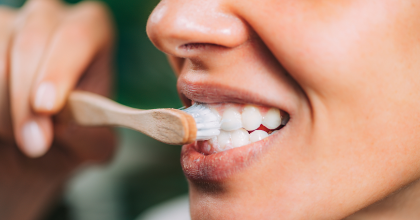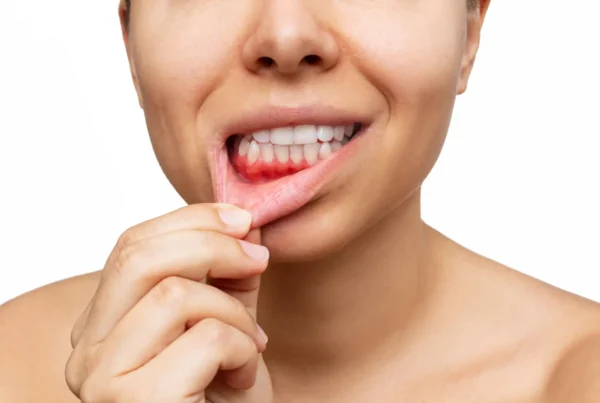Why zinc is used in toothpaste
Zinc is an essential trace element that plays a crucial role in numerous biological processes. It supports immune function, protein synthesis, wound healing, and DNA production. In the context of oral health, zinc has antibacterial, anti-inflammatory, and antifungal properties, making it a valuable ingredient in modern toothpaste formulations.
When used regularly, zinc toothpaste can help maintain healthy teeth and gums while also combating one of the most common oral complaints – bad breath.
How zinc supports oral hygiene
Zinc in toothpaste contributes to oral health in several key ways. It’s not just a supporting ingredient, but an active component that can improve breath, protect against cavities, and support gum health.
Fresh breath and odor control
One of zinc’s primary benefits is its ability to neutralize sulfur compounds produced by bacteria in the mouth. These compounds are often responsible for halitosis, or chronic bad breath. Zinc binds to these volatile molecules and inactivates them, helping to maintain long-lasting freshness. This is why zinc is commonly found in both mouthwashes and toothpastes aimed at people who struggle with persistent bad breath.
Cavity prevention
Zinc’s antibacterial properties help control the bacterial activity that leads to tooth decay. While not a direct substitute for fluoride, zinc helps limit bacterial growth and can reduce enamel demineralization – a critical factor in the development of cavities. Zinc oxide, a form of zinc used in dentistry, is even applied in temporary dental fillings and root canal sealants, although these uses are limited to short-term treatments.
Gum health and inflammation
Gingivitis, or gum inflammation, is a widespread issue that can progress to periodontitis if left untreated. Zinc’s anti-inflammatory action helps reduce gum swelling and bleeding. Incorporating zinc toothpaste into a daily routine can support periodontal health and serve as a preventive measure against more serious gum diseases.
Tartar control
Zinc also acts as an inhibitor of tartar buildup. By slowing the mineralization of dental plaque, it helps prevent hard deposits that require professional cleaning. This contributes to better long-term dental hygiene and minimizes the need for frequent scaling treatments.
Read more: Coconut oil toothpaste
Advantages of zinc-based toothpaste
Toothpaste containing zinc offers multiple benefits for individuals seeking a more effective approach to oral hygiene. It combats bad breath, supports enamel protection, and promotes healthier gums. For people looking for a multi-purpose toothpaste, zinc-based products provide a solid balance between fresh breath and preventive dental care.
In many formulas, zinc is combined with mild sweeteners such as sorbitol or xylitol, which enhance the taste and provide additional dental benefits like cavity prevention and dry mouth relief.
Disadvantages and limitations
Despite its many strengths, zinc toothpaste is not without drawbacks. A small number of people may experience allergic reactions or oral irritation due to sensitivity to zinc or other ingredients. Some may also find the taste or texture less appealing than traditional toothpaste formulas.
Another consideration is that zinc does not have whitening properties. Individuals focused on stain removal or seeking a visibly brighter smile may not achieve their desired results with zinc alone. In such cases, toothpastes containing hydrated silica or activated charcoal may be more appropriate.
Finally, as with many high-quality natural oral care products, toothpaste containing zinc may come at a slightly higher price point due to ingredient sourcing and specialized formulation.
Summary – should you use toothpaste with zinc?
Zinc, often labeled as zinc oxide or zinc citrate in ingredient lists, is a powerful and effective component of modern oral care. While it doesn’t whiten teeth, its antibacterial, anti-inflammatory, and breath-freshening properties make it a smart choice for those aiming to protect their gums, prevent tartar buildup, and enjoy long-lasting freshness.
With regular use, zinc toothpaste helps maintain healthy teeth and gums, while reducing the risk of cavities and unpleasant odors. It’s widely available online and in dental care shops, often marketed for its dual action against bacteria and bad breath. For those seeking a more targeted approach to oral hygiene without the harshness of whitening agents, zinc toothpaste may be the perfect everyday solution.






